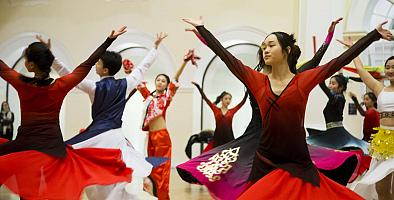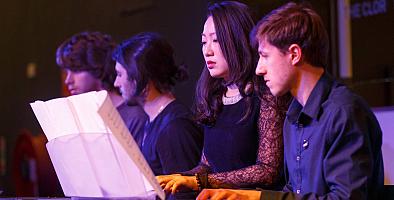Course information
Department
Length
1 year full-time or 2 years part-time
Scholarship information
Course overview
The MA Music (Popular Music Research) engages with scholarly debates and public controversies around popular music, while examining and developing both traditional and innovative ways of researching popular music.
The Masters provides a grounding in the development of popular music research as a subfield of musicology, and encourages critical thinking about:
- musical texts, artefacts and ecologies
- audiences, reception and questions of interpretation
- creativity, industries and production
- repertoires broad in historical range and geographical scope
The course addresses contemporary issues of significance to academics, musicians, industries and organisations involved with popular music.
You'll develop research skills, critical thinking and rigorous methodological expertise with a range of applications both within the academy (at doctoral level) and outside (in music-related industries, marketing, arts management, museums and archives, the sciences).
Although a knowledge of and passion for popular music is vital, it is not essential that your first degree is in music or popular music.
We welcome applicants from a wide range of disciplines: the course is designed to be of benefit not only to those wishing to continue their research at doctoral level, but also those wishing to reflect on their experiences as musicians, listeners, or media and arts industry professionals.
Contact the department
If you have specific questions about the degree, contact Professor Keith Negus.





